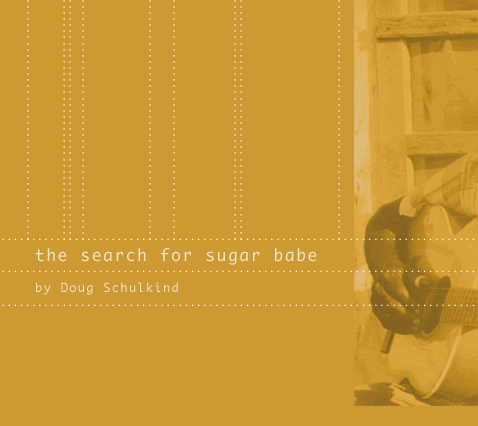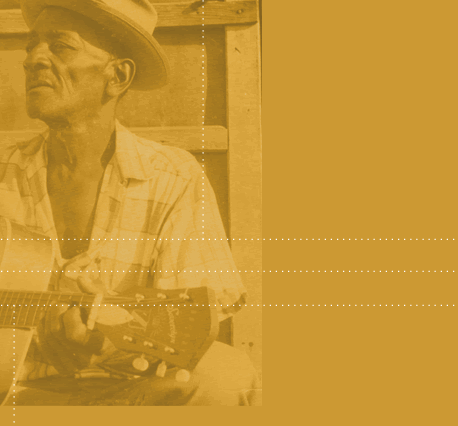

Sometime between my second and third birthday I went almost completely deaf. Did you know that tonsils can become so infected they can cause adenoids to swell, compressing the auditory nerves? Well, something like that happened to me. One day, after a long bout of crying, I was taken to the doctor, who immediately diagnosed acute tonsillitis and scheduled me for surgery.
After the operation, I started asking about all the strange sounds in the recovery room. Apparently I had become particularly fascinated with a noise on the outside window ledge; I didn't know that it was the sound of a bird chirping. Slowly my parents began to notice that all sorts of noises seemed new to me, which led to the ultimate realization that I had been losing my hearing, that the surgery had brought my hearing back.
One summer day back when I was in high school, I was shooting baskets in my driveway and listening to my favorite radio station (WPFW in D.C.). While I was working on my best shot, a left-side baseline turnaround jumper, an old country blues tune came crackling through the transistor's two-inch speaker. It was plain and simple, just a guy and a guitar, but I put the ball down and picked up the radio, jacking the volume as much as I could. The song, a vaguely brooding tale, carried the weight of just-under-the-surface violence, yet it had a sweet, almost carefree lilt to it and the contrast was captivating.
When it ended, another song came on and then another one followed that. The DJ must have identified the track before playing it, as I never did hear him announce who the singer was. Thus began an obsessive search for that blues song and the artist who sang it. I guessed that the song had "sugar" in the title, because that word was repeated throughout, but I had no other information to go on. I started scouring the blues section of every record store I walked into, looking for "Sugar" songs.
There was John Lee Hooker's "Sugar Mama," Bukka White's "Sugar Hill," Dr. Ross's "Sugar Gal" and Louisiana Red's "Sugar Hips." I bought any record I could find that had such a song on it, but still the tune eluded me. Over the years the hunt continued and along the way I amassed quite a pile of country blues records. For a while Sleepy John Estes was my favorite. Maybe it was because he sounded a lot like the voice I remembered hearing back on my driveway. Later I developed a passion for Big Bill Broonzy, Scrapper Blackwell and Charley Patton. Every one of them a genius, but none the one I was looking for. I moved to New York after college and the ridiculous number of record stores I had to choose from all but guaranteed a successful conclusion to my search.
It was inconceivable to me that the record wouldn't turn up soon. Sure enough, paydirt seemed to come in the form of Walking Blues, a two-record set of Big Joe Williams which I found at the late great Freebeing over on Second Avenue. There, on side 2/track 3, was a number called "Sugar Babe" and I was sure this was it. When I got it home I was ready to face the music, literally. I eased the record onto the turntable and set the tonearm at the beginning of the second side. I figured I'd waited this long, why not let the drama build until showtime. Immediately, though, I sensed my bad luck hadn't run out. The music I heard was a guitar/bass/harmonica trio and, hazy as my memory was, I was certain my song was performed solo. As soon as "Sugar Babe" started in, my dread was cemented. Big Joe was wielding a 12-string guitar and its sound was completely different from the one I remembered.
I let the rest of the side play out and went into the kitchen to make pasta for the fourth time that week. A few more years passed and I had strayed from the journey. I was no longer heading to the blues section first inside a record store. I did continue to scan for "sugar" in the track listings on old blues records. But for the most part, I'd moved on to other obsessions - South African jazz, Cajun music, anything on the great Folkways label.
Killing time one day I stopped back into Freebeing and found myself instinctively drawn to the few blues bins kept in the back. I thumbed through what was there and picked out a wild-looking Arbee Stidham record released on Folkways. Before walking up front to the register the next record in the bin caught my eye. The album jacket sported an old photo of a fellow strumming a guitar in front of a beat-up screen door. The record was credited to "Mance Lipscomb, Texas Sharecropper and Songster." Out of habit I checked the back of the record even though I'd already decided to buy it. It was then that my eyes danced over the words "Sugar Babe, It's All Over Now," the second song on the album.
Despite earlier disappointments I just knew this was the record I had been looking for and that, finally, it was indeed all over. I met a friend for dinner and a movie and didn't get home until close to midnight. I was tired but knew there was one more thing I had to do before going bed. My roommate was already asleep so I slipped on some headphones and gave Mance Lipscomb a spin. The song was pretty damn fine, but to be honest it wasn't nearly as great as I remembered.
Ironically, I have only "Sugar Babe" itself to thank for that. Without the search in the first place I wouldn't have come in contact with all those amazing sounds, the music that ultimately made the song I craved to hear again for so long, so essentially unremarkable. I'll leave it to a professional to determine the psychological impact of my early childhood hearing loss, but I can tell you there has been one lasting effect.
From that morning in the hospital to this very day I've retained an insatiable fascination with sound: ordinary sounds, incidental sounds and especially, musical sounds. It's as if my brief brush with deafness left me in a perpetual state of catch-up, always needing to know more about what it is I'm hearing. Even if it takes me ten years to find out.
